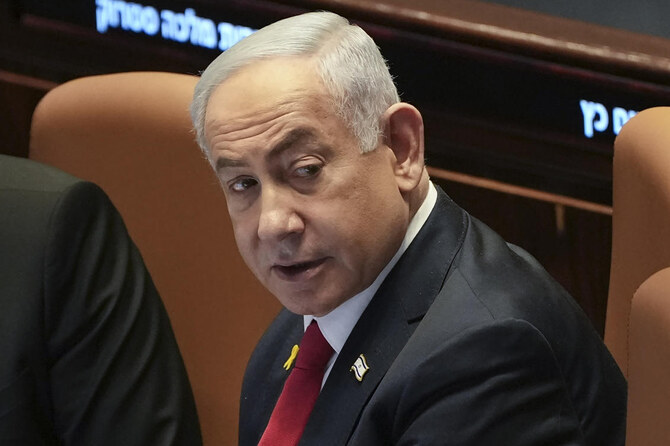Israeli Prime Minister Benjamin Netanyahu takes the stand on Tuesday for the first time in his long-running corruption trial. Here is what you need to know about the charges that have divided the Israeli public at a time of Middle East turmoil.
What are the charges?
Netanyahu was indicted in 2019 on charges of bribery, fraud and breach of trust — all of which Netanyahu denies. The trial began in 2020 and involves three criminal cases. He denies the charges and has pleaded not guilty.
Case 4000
Prosecutors allege Netanyahu granted regulatory favors worth around 1.8 billion shekels (about $500 million) to Bezeq Telecom Israel (BEZQ.TA). In return, prosecutors say, he sought positive coverage of himself and his wife Sara on a news website controlled by the company’s former chairman, Shaul Elovitch. In this case, Netanyahu has been charged with bribery, fraud and breach of trust.
Case 1000
Netanyahu has been charged with fraud and breach of trust over allegations that he and his wife wrongfully received almost 700,000 shekels ($210,000) in gifts from Arnon Milchan, a Hollywood producer and an Israeli citizen, and Australian billionaire businessman James Packer. Prosecutors said gifts included champagne and cigars and that Netanyahu helped Milchan with his business interests. Packer and Milchan face no charges.
Case 2000
Netanyahu allegedly negotiated a deal with Arnon Mozes, owner of Israel’s Yedioth Ahronoth newspaper, for better coverage in return for legislation to slow the growth of a rival newspaper. Netanyahu has been charged with fraud and breach of trust.
Will a verdict come soon?
Unlikely. Unless Netanyahu seeks a plea deal, it could be many more months before the judges rule.
How can he be on trial and remian Prime Minister?
Under Israeli law, a prime minister is under no obligation to stand down unless convicted. If he or she appeals their conviction, they can keep their office throughout the appeals process.
Could he go to jail?
Bribery charges carry a prison sentence of up to 10 years and/or a fine. Fraud and breach of trust are punishable by up to three years in jail.
What has the impact been?
The shock attack by Hamas on Israel on Oct. 7, 2023, and the ensuing Gaza war, swept Netanyahu’s trial off the agenda, as Israelis came together in grief and trauma. Before the war, Netanyahu’s legal troubles bitterly divided Israelis and shook Israeli politics through five rounds of elections.
After Netanyahu’s decisive 2022 victory at the ballot box, his far-right government launched a judicial campaign to curb the powers of the court. It sparked mass protests in Israel and fears among Western allies for the country’s democratic health. Netanyahu denied any link between the judicial overhaul and his trial. He largely abandoned the plan after war broke out, but has revived some anti-judiciary rhetoric in recent weeks.



























